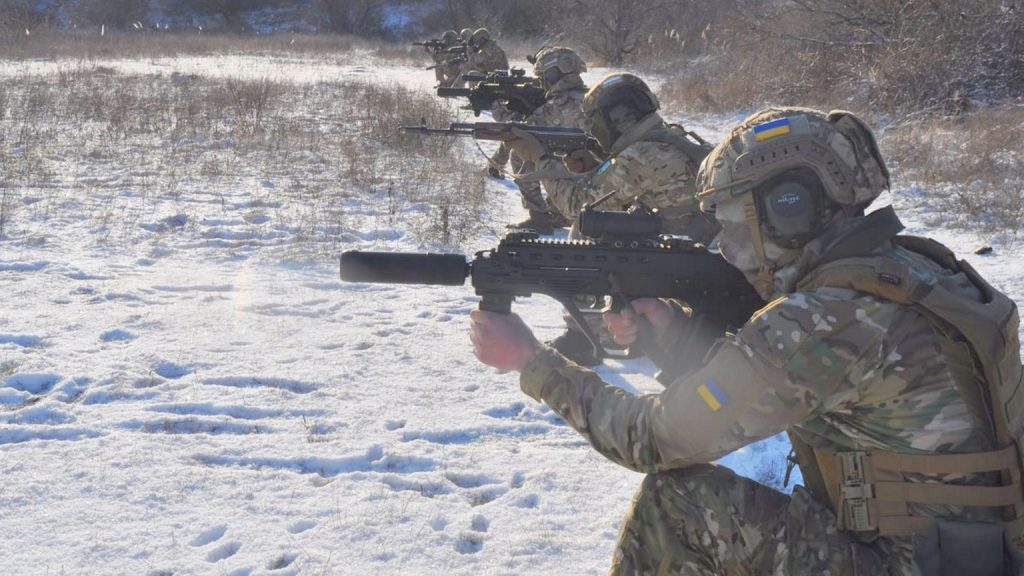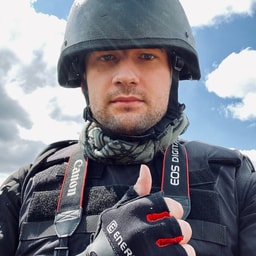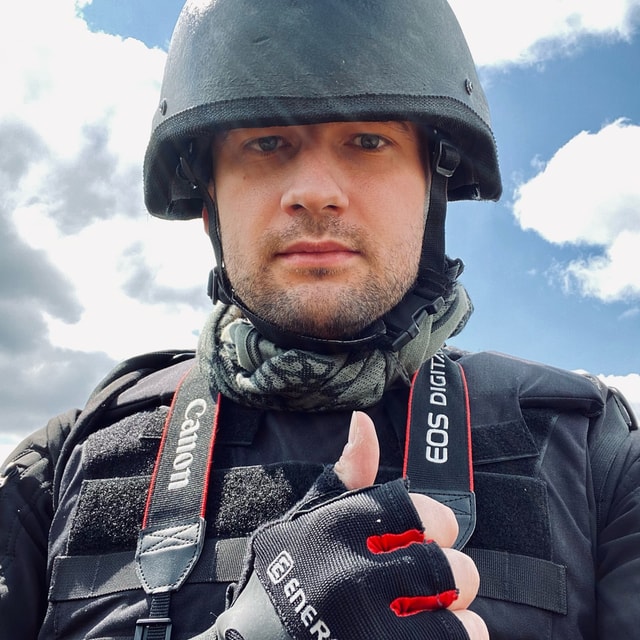Nations expand defense aid to Ukraine as Russia threatens big war

As Russia continues fueling a war crisis threatening a full-scale invasion of Ukraine, more European nations consider and decide on providing Kyiv with defense aid, while traditional big backers like the U.S. and the U.K. render major additional packages of weapons and equipment.
Over just the last few days, the Baltic nations, the Czech Republic, the Netherlands, and Canada said they were ready to provide aid to Ukraine.
In a drastic move declared on Jan. 21, Estonia confirmed its plans to supply a number of FGM-148 anti-tank missile systems, while Latvia and Lithuania declared sending FIM-92 Stinger man-portable anti-aircraft weapons to Kyiv. The U.S.-produced weapons long-sought by Ukraine's military as an effective tool to repel Russia's major offensive in the air and on the ground will be provided to Ukraine following special permission by the U.S., reported on Jan. 19.
"We truly hope Ukraine will not face the need to use this hardware and we call on the Russian Federation to refrain from aggressive and irresponsible behavior," a joint statement from the three nations said on Jan. 21.
In Europe's west, speaking to the country's parliament, Dutch foreign minister Wopke Hoekstra said The Netherlands were also ready to consider a Ukrainian request of assistance or vote in favor of sending weapons to Ukraine via NATO. According to the official, Ukraine has not yet filed any official pleas.
The Czech Republic's Defense Minister Jana Cernochova also on Jan. 20 emphasized the country's readiness to support Ukraine with defensive capabilities.
"The Czech Republic historically, politically, and in terms of alliances, has been on Ukraine's side," Cernochova was quoted as saying on Jan. 20. "If Ukraine needs aid, we will do everything possible to help."
According to Cernochova, the support of Ukraine in defense enjoys the full endorsement of all five key parties in the Czech parliament.
On Jan. 21, it became known that Cernochova next week would seek government approval to provide Kyiv with an unspecified quantity of 152-millimeter artillery rounds, a serious component of field military power.
According to the latest intelligence data, Moscow has concentrated over 120,000 troops in regions surrounding Ukraine, and also deployed a large number of combat-ready weaponry and military hardware from its distant districts.
The ongoing diplomatic effort led by the West has had no positive effect so far, while the Kremlin continues with its extreme warlike rhetorics, particularly accusing Ukraine of discriminating against the Russian-speaking population and NATO of posing a grave security threat to Russia.
Many nations accused Russia of deliberately instigating the crisis in order to justify its aggression and possibly new territorial claims.

German opposition
Estonia, meanwhile, is known to have purchased 80 Javelin launchers and 350 missiles from the U.S. in 2015.
Apart from the missiles from its own arsenal, Estonia also vowed to try and provide Kyiv with 122-millimeter field guns previously operated by Germany and Finland.
Upon that, Germany, the traditional opponent of giving military support to Ukraine, continues declining requests for aid and is expected to make it harder for other nations to help Ukraine for the sake of "stable relations" with the Kremlin.
Read also: Germany digs in heels against harder measures to restrain Russia
But when it comes to the field guns, Estonia also needs German and Finnish approval under export control regulations. The circumstances do not look promising given the history behind Berlin blocking Ukrainian attempts to procure weapons via NATO Support and Procurement Agency (NASPA), as well as repeatedly rejecting Kyiv's direct requests to sell warships and air defense systems.
According to media reports, Germany had received the Estonian request by Jan. 21. But as Germany's Defense Ministry again stated on Jan. 19, "lethal weapons will not be supplied" to Ukraine, and this was the position endorsed by the country's recently-appointed head of government Olaf Scholz and Foreign Minister Annalena Baerbock.
Moreover, as Der Spiegel said on Jan. 21, Scholz had reportedly declined a short-notice invitation from U.S. President Joe Biden to discuss Ukraine.
Earlier, on Jan. 17, Baerbock again stated the new German cabinet was interested in having stable relations with Russia, to which there were "no alternatives."
Defense Minister of Latvia Artis Pabriks also on Jan. 20 signaled this country's readiness to allocate lethal and non-lethal military hardware for Ukraine. The nature of the assistance package is to be disclosed following the transfer, according to the official.
At the same time, Pabriks in his public address criticized European leaders for failing to answer Ukraine's cry for help.
"I am really sorry that there are several European states that are not ready to do this due to various reasons," he said. "I do not think this is the right thing."
Old allies coming to help
In the last few days, the United Kingdom had made a breakthrough by announcing and immediately executing a decision to drastically expand its assistance of Ukraine from helping resurrect its naval capabilities to shipping advanced infantry weaponry.
Following the British Secretary for Defense Ben Wallace's speech to the House of Commons, nearly 2,000 short-range anti-tank missile launchers believed to be Swedish-British NLAW systems, were transported to Kyiv as part of the U.K.'s updated assistance package.
Due to the sensitivity of the issue, the transfer by Royal Air Force's Boeing C-17 Globemaster III aircraft was carried out with minimum publicity, according to Ukrainian officials, who had confirmed the delivery late on Jan. 18.
Nearly 30 instructors have reportedly been sent to Ukraine to provide training to Ukrainian NLAW operators for a short period.
But according to Secretary Wallace, this might be not the final shipment of lethal weaponry to Ukraine.
Read also: What we know about British tank killers likely sent to Ukraine
"I will keep the question of sending more defensive weapons to Ukraine under close review. I do not rule anything out within helping Ukraine deliver self-defense," Wallace told the British press on Jan. 20.
"The UK is determined to stand by Ukraine, its sovereignty, and our mutual interests. We have been helping them build defensive capacity for eight years now and we decided to step up that assistance in light of Russian aggression. Britain stands by its allies."
Russia immediately accused London of fueling tensions over Ukraine.
The U.S., which has ensured over $2.5 billion in military assistance to Kyiv since 2014, also decided on accelerating its support. During his brief visit to Kyiv on Jan. 19, U.S. Secretary of State Anthony Blinken confirmed the additional $200 million for Ukraine's military, along with $300 million, including $75 million on lethal weapons approved by Congress for the year 2022.
The go-ahead to the Baltic nations to send missile systems to Ukraine was also part of the U.S. effort to bolster Ukrainian defense as Russia continued its aggressive buildup, according to multiple statements from U.S. senators and government officials.
Canada, apart from sustaining a multiyear military training mission, Operation Unifier, also sent on Jan. 18 a small number of special force operators to Ukraine as part of its effort to help deter Russia -- but also, according to reports, in order to evacuate Canadian diplomatic personnel if necessary.
When asked repeatedly during her January visit to Kyiv if Ottawa contemplated also sending weapons to Ukraine, Melanie Joly very carefully avoided confirming or denying it.
Nonetheless, on Jan. 21, Canadian Prime Minister Justin Trudeau announced a $120 million loan to the Ukrainian government to help it sustain the Russian pressure.
“Russia is aiming to destabilize Ukraine, including economically," the Canadian press cited Trudeau as saying. "This loan will help support Ukraine’s economic resilience. We’re also exploring other options to provide financial and other support. Again, Canada calls on Russia to de-escalate and engage in meaningful dialogue.”









